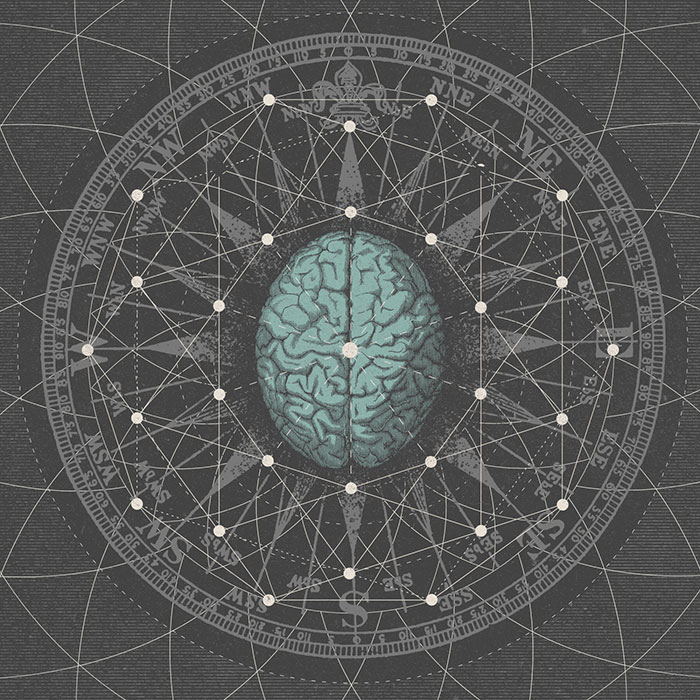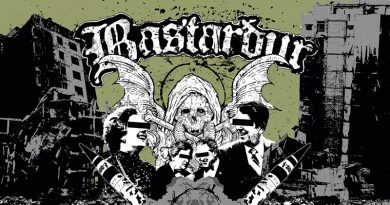Review: Bipolar Architecture ‘Metaphysicize’
Pelagic Records are no strangers to rooting out bands that are consumed by the notion of pushing the boundaries of heavy music and coming off the back of a year which saw releases from the likes of The Ocean, Lo!, Herod and SÂVER mark them out as the destination for high quality, cerebral music to challenge your musical palette.

Showing no signs of slowing down, the label have already helped fill my New Year review quota for the next couple of weeks, the first of which being the second album by international (German/Turkish) four-piece Bipolar Architecture.
Having released their Depressionland debut in 2022 the band, formed by ex-members of Turkish death metallers Heretic Soul, bring a mixture of progressive and post-metal as well as shoegaze and smatterings of djent to make a dense sound that places them firmly at the heavy end of the spectrum without being content to settle into any one of those genres.
Bipolar Architecture’s latest album Metaphysicize straddles the death metal spectrum but cannot be pigeon-holed by it and for all the ferocity that the band musters, there is an acute sense of melody and dynamism to their compositions that belies their relative youth as a band.
Over the course of seven tracks in forty minutes, the quartet showcase their ability to balance their raw, aggressive instincts with deft harmonies, electronics and tight, modern production that gives their latest album a glossy shine that begs you to stay longer and explore the depths that lurk under the surface.
Continuing the work they began on their The Tragic Protagonist EP and honed on their first album, the band have established what, on paper, seems like a relatively simple formula of exposing their juxtaposing sides; the blackened sludge and metallic hardcore instincts slam with the snarling brutality of their former incarnation but are offset by atmospheric moments of taught blackgaze, shimmering tenderness or dramatic film score introspection which allows vocalist Sarp Keski to emote with his rasping howl.
It wouldn’t be a post-metal review these days if I didn’t throw in a reference to Cult of Luna and on Metaphysicize, the band attempts in a similar manner to balance these nuances to reach Lights On The Hill moments of high catharsis.
Opening with tender guitar, the title track builds to an epic, stately, orchestral instrumental sweep that puts them firmly in post-metal territory. After the faltering drum fill, the gravelly vocals howl with despair as the rhythm section tightens the screw until they explode in a hail of icy blast beats and sci-fi like guitars. The urgent click of Fatih Kanık’s drums provides the platform for the bass of Enes Akovalı and Keski’s guitar.
The music is given the pace to breathe and shift back and forth through the quiet/loud dynamics, returning to each seismic smash with increasingly heavy tones before the slow fade and lingering guitar joins it to the second track Disillusioned.
Featuring a more intense step up from the first track, the band tighten the screw and up the clashing elements with greater synth and stuttering electronics punctuating the rise and fall that is bound by the cycling lead work until they break out into pure Deafheaven moments of euphoria.
furious drumming and blackened riffing that steps up into choppy grooves, proving the band can let go and slam with the best of them…
The slower, densely atmospheric start to Death Of The Architect, a standout piece from the album, is punctuated by machine gun fire rapid double bass work and they open up the space between notes, letting each moment and intonation hang and take root in your brain before switching back to absolute intensity with pulsing stabs of the extensive instrumentalisation and hints of electronica.
The smouldering quiet begins of Kaygi marks the epic centrepiece of the album as once again the band create moments of searing nihilism and vulnerable beauty. One of the more notable triumphs of the song is that Keski sings the lyrics in his native tongue. Now depending on how much you pay attention, or can glean from the vocal style, you may not notice, but it is understandably a big deal for the singer.
The track itself is a mid-paced march with the band putting all their efforts into going for that powerful emotive burn and the djent bends and dropouts are more striking when they get thrown into the mix.
Alienated opens with furious drumming and blackened riffing that steps up into choppy grooves, proving the band can let go and slam with the best of them. They swing back and forth with no less intensity until the mellow passages offer some relief. When the vocals return with the tempo and urgency magnified, it shifts to a haunting spoken word piece and melodic run.
The muted start to Immor(t)al with its tender guitar and soft drumming once again juxtaposes with the faster moments and sets up the glorious finish with the dazzling synths and delicate piano.
The final track, Dysphoria, mimics this ending with light jarring guitar before heralding another heavier passage which lends credence to the band having a formula, but they sprinkle these explorations with subtle changes and variations that reveal themselves on repeated plays. As the churning march of the guitars go through the gears, they twist the direction and set up the climactic dynamic changes.
Billed by the band as ‘a haunting exploration of the human condition’, Metaphysicize is as bold a statement as Bipolar Architecture could hope to make. They do have a pattern and a structure to how they approach their attempts to create a ‘Dichotic balance of culture, genre, calm and chaos’, but they work hard to ensure that within these phases there is a variety that is very much their own.
The band have created their most refined release yet and have trimmed the fat so that it never outstays its welcome, making this hard to fault as an album for post-metal fans looking for a satisfying hit at the start of the year.
Label: Pelagic Records
Band Links: Facebook | Bandcamp | Spotify | Twitter | Instagram
Scribed by: Mark Hunt-Bryden



